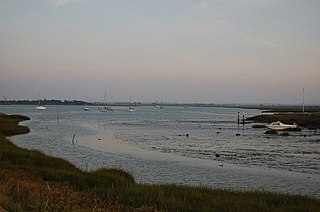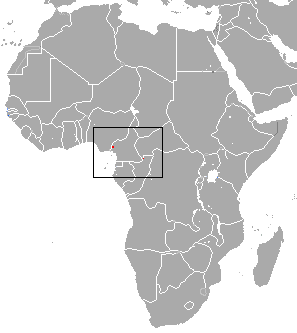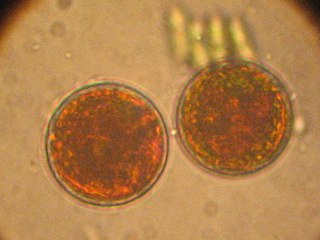
Plovers are members of a widely distributed group of wading birds of family Charadriidae. The term "plover" applies to all the members of the family, though only about half of them include it in their name.

The grey plover or black-bellied plover is a large plover breeding in Arctic regions. It is a long-distance migrant, with a nearly worldwide coastal distribution when not breeding.

The American golden plover is a medium-sized plover. The genus name is Latin and means relating to rain, from pluvia, "rain". It was believed that golden plovers flocked when rain was imminent. The species name dominica refers to Santo Domingo, now Hispaniola, in the West Indies.

The European golden plover, also known as the Eurasian golden plover, or just the golden plover within Europe, is a relatively large species of plover. This species is similar to two other golden plovers, the American golden plover, Pluvialis dominica, and Pacific golden plover, Pluvialis fulva, which are both slightly smaller, slimmer and longer-legged than European golden plover, and both have grey rather than white axillary (armpit) feathers.

The Pacific golden plover is a migratory shorebird that breeds during summer in Alaska and Siberia. During nonbreeding season, this medium-sized plover migrates widely across the Pacific.

Pluvialis is a genus of plovers, a group of wading birds comprising four species that breed in the temperate or Arctic Northern Hemisphere.

The Blackwater Estuary is the estuary of the River Blackwater between Maldon and West Mersea in Essex. It is a 5,538 hectare biological Site of Special Scientific Interest (SSSI). An area of 4,395 hectares is also designated a Ramsar Wetland of International Importance, and a Special Protection Area 1,099 hectares is a National Nature Reserve. Tollesbury Wick and part of Abbotts Hall Farm, both nature reserve managed by the Essex Wildlife Trust, are in the SSSI.

The estuaries of the River Ribble and River Alt lie on the Irish Sea coasts of Lancashire and Merseyside in North West England. Together they, and the area of salt marsh, mudflats, and sand dunes between them, form a Special Protection Area and Ramsar site which covers the coastline between Crosby and Lytham St Annes. These protected areas overlap with two sites of special scientific interest, Ribble Estuary and Sefton Coast.

The Anthomyiidae are a large and diverse family of Muscoidea flies. Most look rather like small houseflies. Most species are drab grey to black. Many Pegomya are yellow, and some members of the genera Anthomyia and Eutrichota are patterned in black-and-white or black-and-silvery-grey. Most are difficult to identify, apart from a few groups such as the kelp flies that are conspicuous on beaches.

Delia flies are members of the Anthomyiidae family within the superfamily Muscoidae. The identification of different species of Delia can be very difficult for non-specialists as the diagnostic characteristics used for immature and/or female specimens may be inconsistent between species. Past taxonomic keys were not as comprehensive in their identification of Delia specimens; they were either too reliant on genetic characteristics, focused solely on a specific life stage, or were focused only on certain species. However current taxonomic keys aim to be more thorough by not only including morphological diagnostics for males, females, and immature specimens of various species, but also their genetic make-up or molecular barcode.
Nymphargus pluvialis is a species of frog in the family Centrolenidae. It is known from the area of its type locality, Pistipata, Río Umasbamba, in the Huayopata District as well as Manu National Park of the Cusco Region of Peru and La Paz, Bolivia. Its common name is Pistipata cochran frog, although it no longer is included in the genus Cochranella.

The rain forest shrew is a species of mammal in the family Soricidae endemic to Cameroon. Its natural habitat is subtropical or tropical moist lowland forest. It is known only from its type locality, and from Kongana, Central African Republic.

Haematococcus is a genus of algae in the family Haematococcaceae. Members of this group are a common cause of the pink color found in birdbaths. One of the most notable species of Haematococcus is H. pluvialis, which is used in cosmetic products due to its production of astaxanthin, a powerful antioxidant carotenoid, under stress conditions.

Cananéia-Iguape-Peruíbe Environmental Protection Area is a protected area in the State of São Paulo, Brazil. It has been designated as a Ramsar site since 2017.

Haematopota pluvialis, the common horse fly or notch-horned cleg fly, or simply cleg in Scotland and northern parts of Ireland, is a species belonging to the family Tabanidae subfamily Tabaninae.
Torrens Island Conservation Park is a protected area in the Australian state of South Australia located on Torrens Island in the Adelaide metropolitan area about 17 kilometres north-northwest of the state capital of Adelaide and about 3.9 kilometres north-northeast of Port Adelaide.
Selymbria is a genus of cicadas in the family Cicadidae, found in the Neotropics. There are about six described species in Selymbria.
Forcipomyia pluvialis is a species of biting midges.

Delia Catalina Ramirez is an American politician who has served as the U.S. representative from Illinois's 3rd congressional district since 2023. Ramirez is a member of the Democratic Party.
Nanda lake is a Ramsar site located in the Indian state of Goa. It is situated in Curchorem. Covering an area of 0.42 square kilometres, it is the only Ramsar wetland site in Goa.














